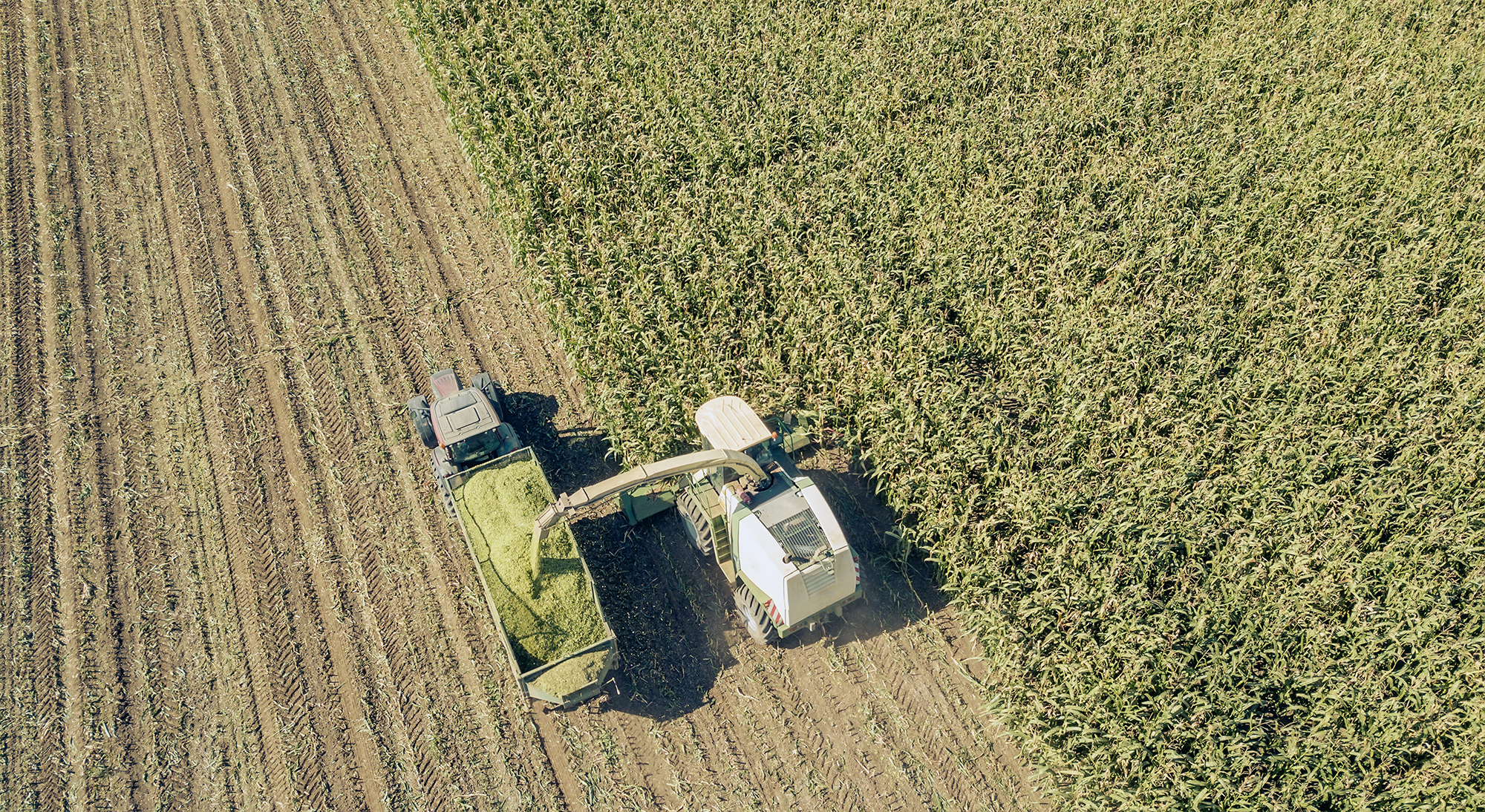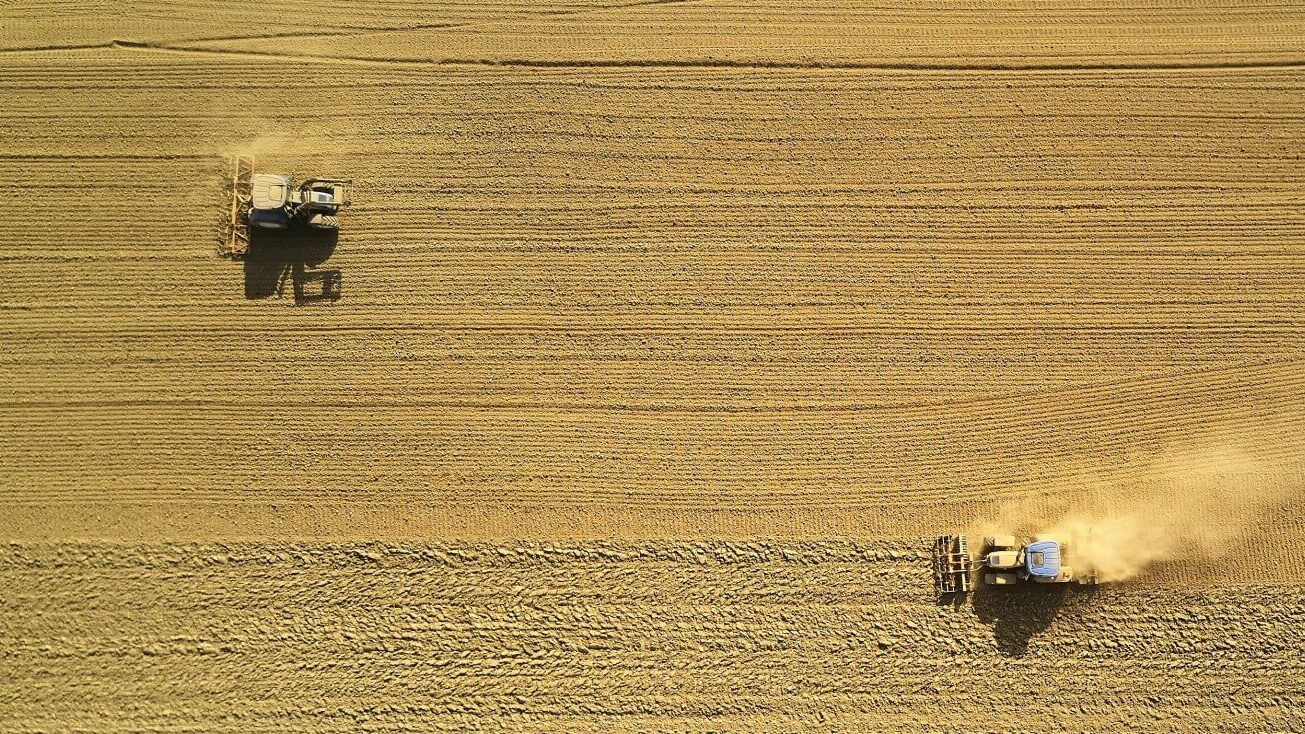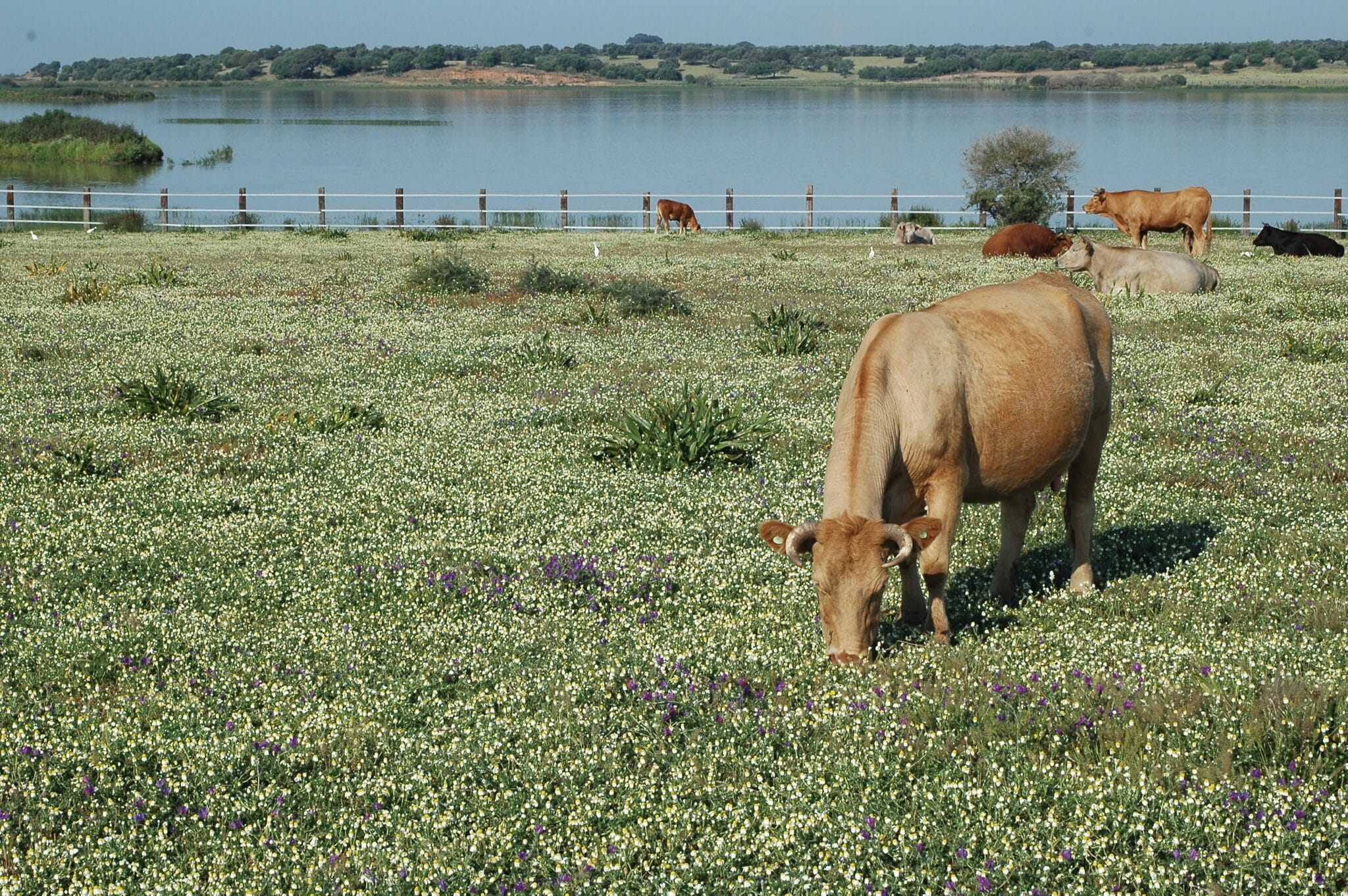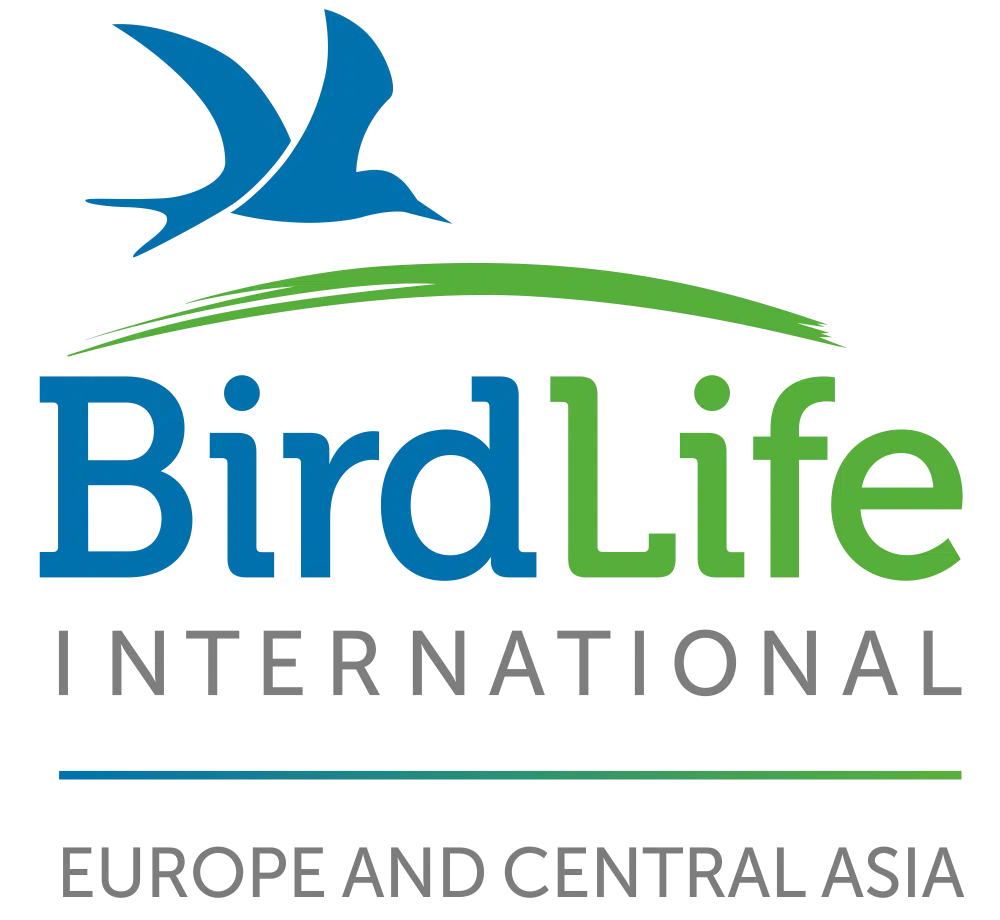Press Release: European Parliament delivers another major blow to EU Green Deal: Approves nature-annihilating Common Agricultural Policy
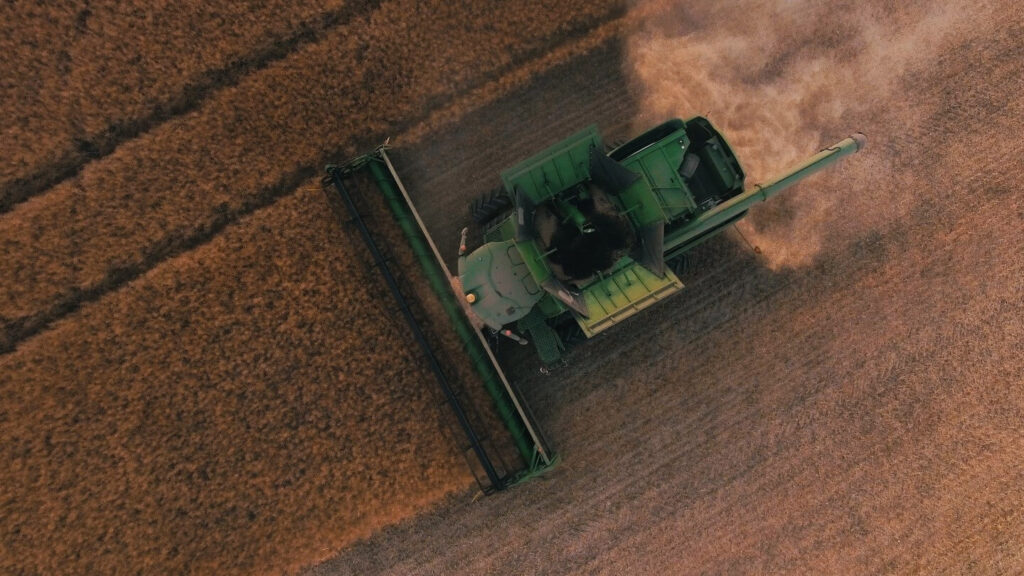
Business as usual and mass funding of nature destruction under new Common Agricultural Policy
Brussels, 23 November 2021
Today, the European Parliament cast their final vote to approve a Common Agricultural Policy (CAP) that will mostly fund intensive and factory farming. The intensive agriculture model it promotes directly leads to biodiversity loss, water and air pollution, over-extraction of water, and fuels the climate crisis.
The CAP, which makes up around a third of the total EU budget, will cost EU taxpayers roughly 54 billion euros per year between 2022-2027.
The Green Deal communication states “the Commission will work with the Member States and stakeholders to ensure that from the outset the national strategic plans for agriculture fully reflect the ambition of the Green Deal and the Farm to Fork Strategy.” However, our first analysis indicates that the new generation of CAP National Strategic Plans will mostly be business as usual rather than drive the transition the planet desperately needs. The governments who fought hard for the new CAP to allow them to keep channelling money to the same old beneficiaries are now, to nobody’s surprise, using this freedom to do exactly that.
The EU’s own auditor service and over 3600 scientists have condemned the CAP, and numerous studies have confirmed that the intensive farming the CAP promotes is pushing many species towards extinction[1]. Since 1980, the EU has lost 57% of its farmland birds. Butterflies, bees and flying insects are also in serious decline.
The most effective solution for reversing the decline of farmland species is to make space for nature for natural habitats such as hedgerows, flower strips and ponds, on farms. At least 10% is needed to be effective. This CAP deal fails to require this, despite it being a target of the EU’s Biodiversity Strategy.
Marilda Dhaskali, EU Agriculture Policy Officer, BirdLife Europe:
“This CAP deal is a free-for-all dressed up as system change and will torpedo the EU’s Green Deal. There is nothing to stop EU countries from continuing to fund the destruction of nature. This is totally incompatible with the EU Parliament’s promises to transform agriculture and their commitments under the Climate Law and Biodiversity Strategy. We will continue to closely watch how Member States will develop their National Strategic Plans and will hold them accountable to deliver on protecting what little nature is left in Europe.”
Ariel Brunner, Senior Head of Policy, BirdLife Europe:
“From Heads of State to national politicians and even President Von der Leyen herself, they all claim that the European Green Deal is our ticket to beat the nature and climate crises. But then they let national Agriculture Ministers and members of the EU Parliament’s Agriculture Committee gut it. They do this on behalf of farming unions defending the fat cats against the interests of their own membership. This is a sad day for Europe and a significant step further towards the abyss of runaway climate change and ecosystems collapse.”
ENDS.
Notes for editors:
[1] Why we need space for nature on farms
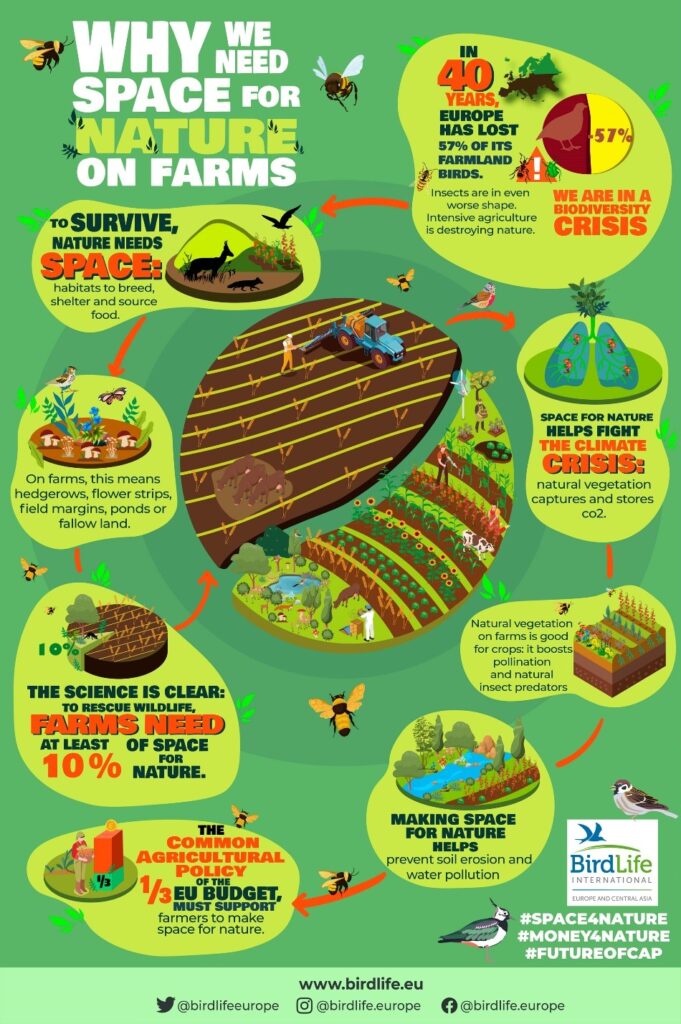
[2] Several studies have shown that the intensive farming model the CAP promotes is pushing many species towards extinction:
- +3600 scientists: The EU Common Agricultural Policy must stop destroying nature
- Industrial Farming a Cause of Plummeting Bird Populations
- EU subsidies benefit big farms while underfunding greener and poorer plots – new research
- The decline of farmland birds in Spain is strongly associated to the loss of fallowland
- ‘Dramatic’ decline in European birds linked to industrial agriculture
- Collapse of farmland bird populations in an Eastern European country following its EU accession
- Open Letter by professional societies of ornithologists, mammalogists, herpetologists and butterfly experts
For more information, please contact:
Honey Kohan, Communication Manager, BirdLife Europe and Central Asia
+32 483 55 95 43
[email protected]
BirdLife Europe and Central Asia is a partnership of 43 national conservation organisations and a leader in bird conservation. Our unique local to global approach enables us to deliver high impact and long-term conservation for the benefit of nature and people. BirdLife Europe and Central Asia is one of the six regional secretariats that compose BirdLife International. Based in Brussels, it supports the European and Central Asian Partnership and is present in 43 countries including all EU Member States. With more than 4100 staff in Europe, two million members and tens of thousands of skilled volunteers, BirdLife Europe and Central Asia, together with its national partners, owns or manages more than 6000 nature sites totalling 320,000 hectares.
Image: ©Thomas Hertogh
You might also be interested in:
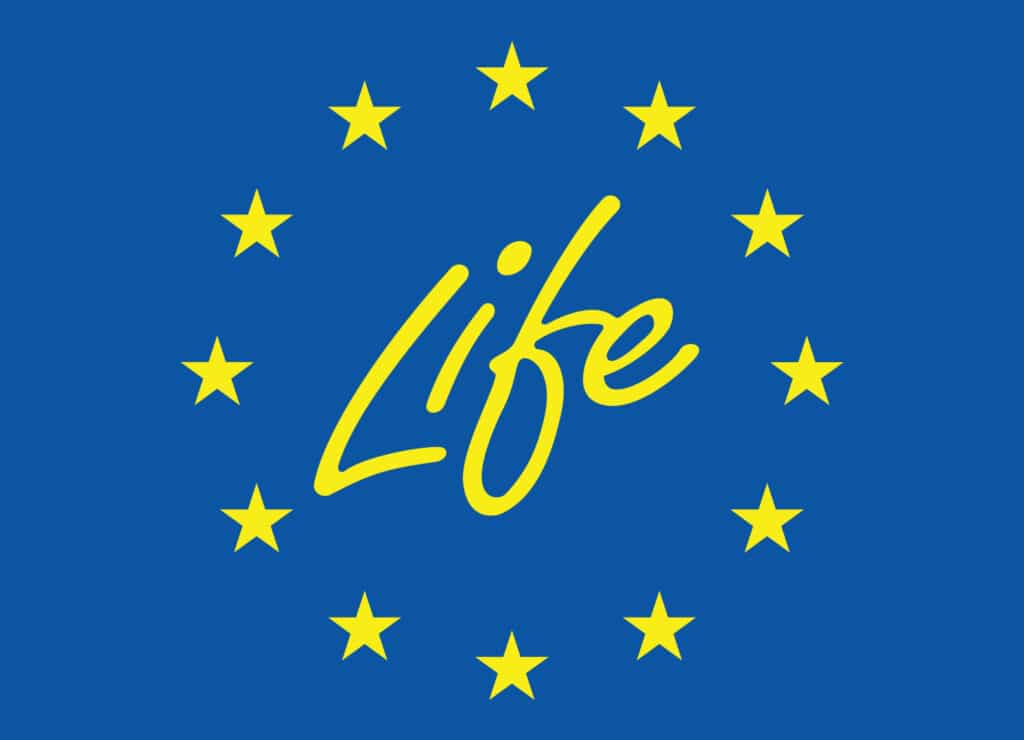 | Stichting BirdLife Europe gratefully acknowledges financial support from the European Commission. All content and opinions expressed on these pages are solely those of Stichting BirdLife Europe. The European Commission is not responsible for any use that may be made of the information it contains. |
